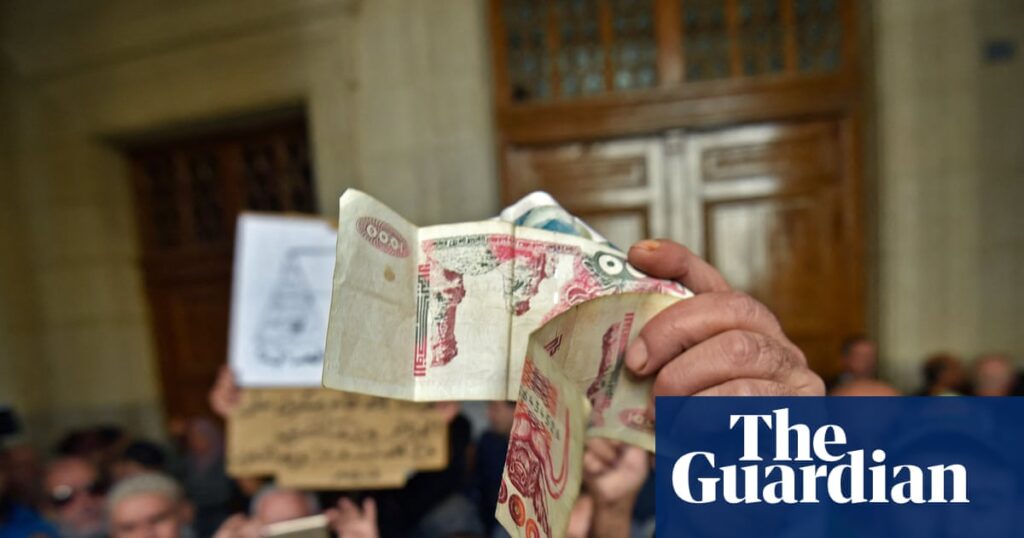From the tea houses of the ancient town of Casbah to the lemonade stalls in the Roman ruins of Tipaza and the fashion stores of downtown Algiers, cash remains king in and around the capital of Africa’s third largest economy.
Unlike in parts of east or west Africa, mobile money transfers are not a thing and only a few establishments take card payments.
“Ask any Algerian,” said Ali Nassir, a driver with the French taxi-hailing app Heetch, which has no card payment option. “Cash is the best thing here.”
Some Algerians – including Nassir – blame the situation on continued divergence of the dinar’s official exchange rate to the dollar and the black market rate. But across the continent, even in countries with cashless policies, cash at point of sale is still very much in demand.
Partly this is due to a trust deficit between sellers and buyers. “Outside of the city, many people don’t want to pay online before they get their order,” said Tania Chorey, co-founder of Shoe Empire, a boutique in the Kenyan capital, Nairobi. “If you send items before collecting money, sometimes people switch off their phone to avoid paying.”
For many of the policy experts and merchants attending the fourth edition of the Intra-African Trade Fair this month in Algiers, the key question was how to make real-time trade across currencies easier in cash-dominated economies without resorting to third-party operators.
‘Financial sovereignty’
For years, policymakers have struggled with the problem. For instance, a client from Burkina Faso who wants to buy dresses from a fashion designer in neighbouring Ghana either has to find a way to send money in cash across the border, or use an American or European correspondence account or payment gateway.
At the IATF, described as “the engine that accelerates trade expansion and investment flows” by the former Nigerian president Olusegun Obasanjo, who chairs its advisory council, the situation played out at a vendor’s stall.
With no cash to pay for carrot oils pressed in the South African city of Polokwane, a Nigerian attender had to use a US-based online remittance service that charged a tenth of the transaction cost in transfer charges.
“I never had issues [in South Africa] because I always have swiping machine,” said Amelia Modjadji, who runs an oils business, Ami Skin. “However if it’s a big transaction, I prefer cash.”
Enter the Pan-African Payment and Settlement System (Papss), promising instant transfers of funds within seven seconds from one African country to another, in their respective local currencies.
In 2022, Papss was launched as a much-anticipated tool to integrate trade. The initiative, which operates in the African Continental Free Trade Area, is backed by the African Export-Import Bank and the African Union. It launched a card for retail payments last June.
Mike Ogbalu III, the CEO of Papss, said it drastically reduces processing fees and time associated with overseas payment methods, but also helps with “financial sovereignty”.
“Payments are an excellent way of exchanging goods and services,” he told the IATF. “However, they are also an instrument of control … we saw a certain country invade another country and all the payment systems overnight stopped working. We want to [keep] Africa from such things.”
So far, the scheme has co-opted dozens of banks in 18 countries including Zambia and the sometimes forgotten Comoros, and hopes to fully roll out across the continent in the coming months.
A game-changer
“We want to use this platform to encourage you [small and medium businesses across Africa] that your market should be 1.4 billion people [in Africa] and Papss will handle the settlement of those transactions,” Ogbalu said.
This could take a while as Papss still faces many challenges including limited digital infrastructure, especially in rural areas, currency volatility, and varying foreign-exchange controls.
Some experts say competition with established global payment networks means Papss must balance affordability with reliability to gain broad acceptance.
Others such as Lucie Ekeleba Blay, an Accra-based lawyer and former adviser to the West African Monetary Agency, who is excited about the initiative, say the fact that Papss is designed by the African Export-Import Bank, a supranational financial entity, rather than by central banks in African countries, could also present a challenge.
“Many [central banks] already have their own interoperability and payment infrastructure projects under way,” she said. “This raises a question of ownership and alignment: whether central banks will see Papss as a complementary system or as competition that could divert profits and influence … without careful coordination, that tension could slow adoption or limit its effectiveness.”
If all goes well, such a super-fast system could eventually make sending money across African borders as easy as sending a text. That would be a game-changer for small businesses on the continent and make life simpler for people like Chorey, who can’t wait to use it.
“People outside Kenya use Moneygram or Western Union and for that you have to go to their offices to withdraw,” she said. “But for Papss, [payments] will come to your phone. So that’s easy.”

